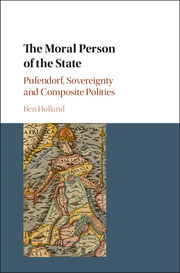References
Published online by Cambridge University Press: 13 July 2017
- Type
- Chapter
- Information
- The Moral Person of the StatePufendorf, Sovereignty and Composite Polities, pp. 222 - 247Publisher: Cambridge University PressPrint publication year: 2017



